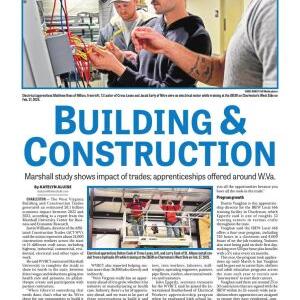The Wall Street Journal published this editorial on June 22. It was distributed by the “““Į╩ėŲĄsociated Press.
President Trump“““Į╩ėŲĄÖs decision to strike Iran“““Į╩ėŲĄÖs three most significant nuclear sites on Saturday helped rid the world of a grave nuclear threat and was a large step toward restoring U.S. deterrence. It also creates an opportunity for a more peaceful Middle East, if the nations of the region will seize it.
“““Į╩ėŲĄ£Iran“““Į╩ėŲĄÖs key nuclear enrichment facilities have been completely and totally obliterated,“““Į╩ėŲĄØ Mr. Trump said Saturday night. He made clear Iran brought this on itself. “““Į╩ėŲĄ£For 40 years, Iran has been saying “““Į╩ėŲĄśdeath to America,“““Į╩ėŲĄÖ “““Į╩ėŲĄśdeath to Israel.“““Į╩ėŲĄÖ They“““Į╩ėŲĄÖve been killing our people,“““Į╩ėŲĄØ he said, citing 1,000 Americans killed by Iran-supplied roadside bombs and other means. A nuclear Iran was a perilous threat to Israel, the nearby Arab states, and America.
Mr. Trump gave Iran every chance to resolve this peacefully. The regime flouted his 60-day deadline to make a deal. Then Israel attacked, destroying much of the nuclear program and achieving air supremacy, and still the President gave Iran another chance to come to terms. The regime wouldn“““Į╩ėŲĄÖt even abandon domestic uranium enrichment. Ayatollah Ali Khamenei wanted a bomb more than peace.
The Pentagon on Sunday disclosed more details of the mission, which included effective deception and B-2 bombers and deep-penetrating bombs only the U.S. can deploy. A full damage assessment will take time, and some nuclear material or enrichment capability may have survived. But the Israelis believe the site at Natanz, where enriched uranium was stored, has been completely destroyed, and the Fordow site severely damaged. At the very least Iran“““Į╩ėŲĄÖs nuclear program has been set back by years.
Military conflict is unpredictable and Iran may retaliate, no matter how self-destructive that would be. Iran and its Iraqi proxies have threatened U.S. regional bases with missile fire, but Mr. Trump warned that “““Į╩ėŲĄ£future attacks will be far greater“““Į╩ėŲĄØ if Iran goes down that road. It now knows Mr. Trump isn“““Į╩ėŲĄÖt bluffing. If the regime values self-preservation, it will give up its nuclear ambitions and stand down.
Much of the press has fixated on the idea that Mr. Trump has now joined or even started a conflict. But Iran has been waging regional and terrorist war for decades. It“““Į╩ėŲĄÖs as likely that he has helped end it. Leaving Iran with a hardened nuclear enrichment facility after an Israeli military campaign would have been a recipe for maximum danger, all but asking Iran to sprint to a bomb.
At the same time, the Israeli campaign yielded an unrivaled strategic opportunity. Suddenly, Iran“““Į╩ėŲĄÖs airspace was uncontested. Its substantial ballistic-missile program was degraded. Several of its proxies had been bludgeoned into silence. Its nuclear program had been reduced to a few key sites.
The opportunity to act and the danger of standing pat may have proved decisive. We would say that they left Mr. Trump little choice, except U.S. Presidents always have a choice, and they have been known to kick the can down the road. To his credit, Mr. Trump didn“““Į╩ėŲĄÖt. This shows the President wanted to leave no doubt about Iran“““Į╩ėŲĄÖs nuclear program and take it all down.
Credit goes to him for meeting the moment, despite the doubts from part of his political base. The isolationists were wrong at every step leading up to Saturday, and now they are again predicting another Iraq, if not a road to World War III. But Mr. Trump had to act to stop the threat in front of him to protect America, which is his first obligation as President.
“““Į╩ėŲĄ£History will record that President Trump acted to deny the world“““Į╩ėŲĄÖs most dangerous regime the world“““Į╩ėŲĄÖs most dangerous weapons,“““Į╩ėŲĄØ Israeli Prime Minister Benjamin Netanyahu said Saturday night. Mr. Trump thanked him and said “““Į╩ėŲĄ£we worked as a team.“““Į╩ėŲĄØ The Israelis, who proved their strategic value as an ally, would like to complete the mission by destroying what remains of Iran“““Į╩ėŲĄÖs missile infrastructure. They deserve a green light, especially as those missiles are threatening U.S. bases.
The removal of Iran“““Į╩ėŲĄÖs nuclear threat and degradation of its military will create new possibilities in the Middle East. Iran“““Į╩ėŲĄÖs proxies will be less able to make trouble in Lebanon, Syria, Iraq and Gaza. The Sunni Arab states want a new era of economic development, and Iran could join them if it chooses. Perhaps the Iranian people will get a say.
The chatter about TACO“““Į╩ėŲĄö“““Į╩ėŲĄ£Trump always chickens out“““Į╩ėŲĄØ“““Į╩ėŲĄöwill now quiet down, but the more significant reassessment has to do with U.S. foreign policy. The Obamaites of the left, and lately of the right, counseled that the world had to bow to Iranian intimidation. The best we could hope for was a flimsy deal that bribed Iran with billions of dollars and left open its path to a bomb. They were wrong, and the world is safer for it.












